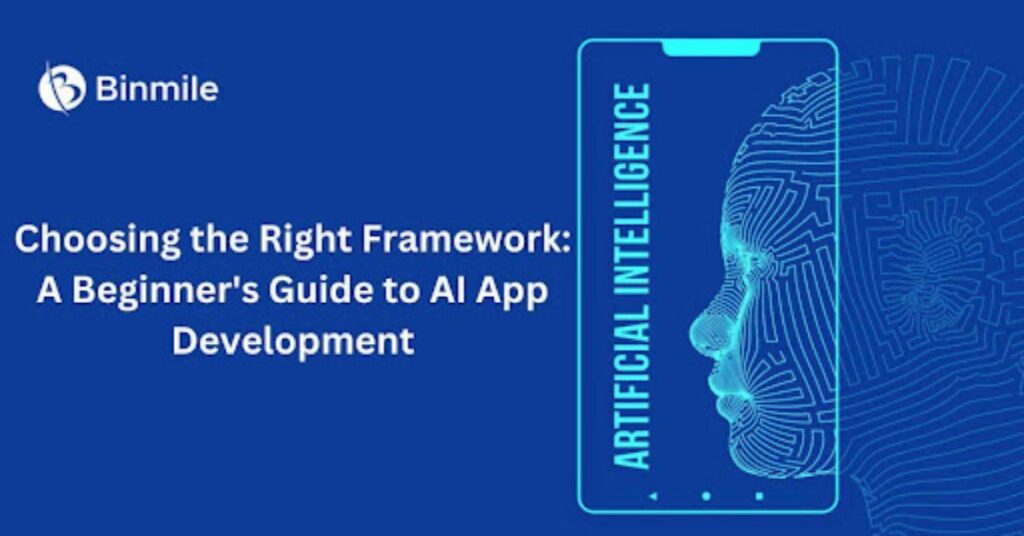AI app development involves creating applications that leverage artificial intelligence techniques to perform tasks traditionally requiring human intelligence. From recommendation systems to natural language processing, AI apps are revolutionizing industries and enhancing user experiences. Understanding how to build an AI app is essential for developers looking to tap into the potential of this transformative technology.
Understanding Frameworks
Frameworks are software tools that provide pre-built modules and libraries for developing AI applications. They streamline the development process by offering ready-to-use components for tasks like data preprocessing, model training, and evaluation.
Factors to Consider
When choosing an AI framework, several factors must be considered, including project requirements, programming language preference, community support, documentation availability, scalability, and integration capabilities.
Popular AI Frameworks
Some of the most popular AI frameworks include TensorFlow, developed by Google Brain, PyTorch, developed by Facebook’s AI Research lab, and scikit-learn, a machine learning library for Python.
Compatibility and Integration
It’s essential to choose a framework that seamlessly integrates with existing systems and technologies and is compatible with hardware accelerators like GPUs and TPUs for optimized performance.
Scalability and Performance
Scalability and performance are critical considerations, especially for large-scale AI applications. Frameworks should be capable of handling increasing workloads and delivering efficient performance.
Community Support and Documentation
Community support and comprehensive documentation are invaluable resources for developers, providing guidance, troubleshooting assistance, and access to a wealth of knowledge and expertise.
Learning Resources
Numerous tutorials, courses, and online resources are available for beginners to learn how to use AI frameworks effectively. Hands-on experimentation and practical application are essential for mastering framework usage.
Choosing the Right Framework
When choosing the right framework, it’s essential to align with project requirements, evaluate ease of use, assess performance capabilities, and consider long-term support and maintenance.
Hands-On Experience
Hands-on experience is crucial for gaining proficiency in using AI frameworks. Developers should actively engage in coding exercises, projects, and experiments to deepen their understanding and skills.
Common Challenges and Pitfalls
Common challenges when choosing an AI framework include complexity, lack of documentation, and compatibility issues. It’s essential to research thoroughly and seek advice from experienced developers to avoid pitfalls.
Case Studies
Case studies provide valuable insights into successful AI app development projects using different frameworks, demonstrating real-world applications and outcomes.
Future Trends
As AI technology continues to evolve, future trends in framework development may include advancements in model interpretability, automated machine learning (AutoML), and federated learning.
Conclusion
Choosing the right framework is a critical decision in AI app development, impacting project success, performance, and scalability. By carefully evaluating factors such as project requirements, compatibility, and community support, developers can ensure a smooth and successful development process. Additionally, seeking guidance from an experienced AI development company can provide valuable insights and assistance in selecting the most suitable framework for the project’s needs.
FAQs
1. What are the key considerations when choosing an AI framework?
When choosing an AI framework, it’s essential to consider factors such as project requirements, programming language compatibility, community support, scalability, performance, and documentation availability.
2. Which AI framework is best for beginners?
TensorFlow and PyTorch are popular choices for beginners due to their user-friendly interfaces, extensive documentation, and active community support. Additionally, scikit-learn is an excellent option for beginners interested in machine learning.
3. How can I learn to use AI frameworks effectively?
To learn how to use AI frameworks effectively, beginners can explore online tutorials, courses, and documentation provided by the framework’s developers. Hands-on experimentation and practical application are also essential for gaining proficiency.
4. What are some common challenges in AI app development?
Common challenges in AI app development include complexity in model development and deployment, data preprocessing issues, performance optimization, debugging and troubleshooting, and staying updated with rapidly evolving technology.
5. How do I stay updated on emerging trends in AI framework technology?
To stay updated on emerging trends in AI framework technology, developers can follow reputable blogs, attend conferences and workshops, participate in online forums and communities, and subscribe to newsletters and publications from leading AI organizations and research institutions.








2 thoughts on “Choosing the Right Framework: A Beginner’s Guide to AI App Development”